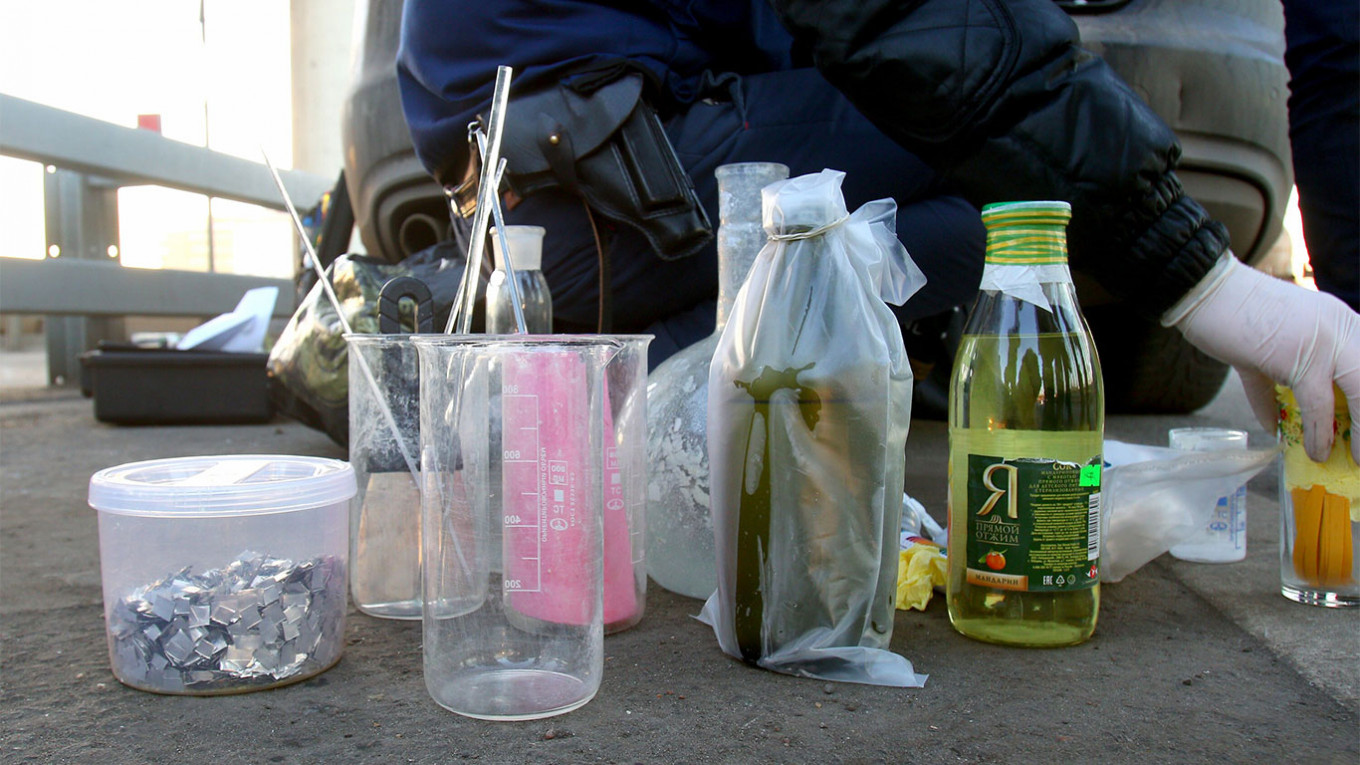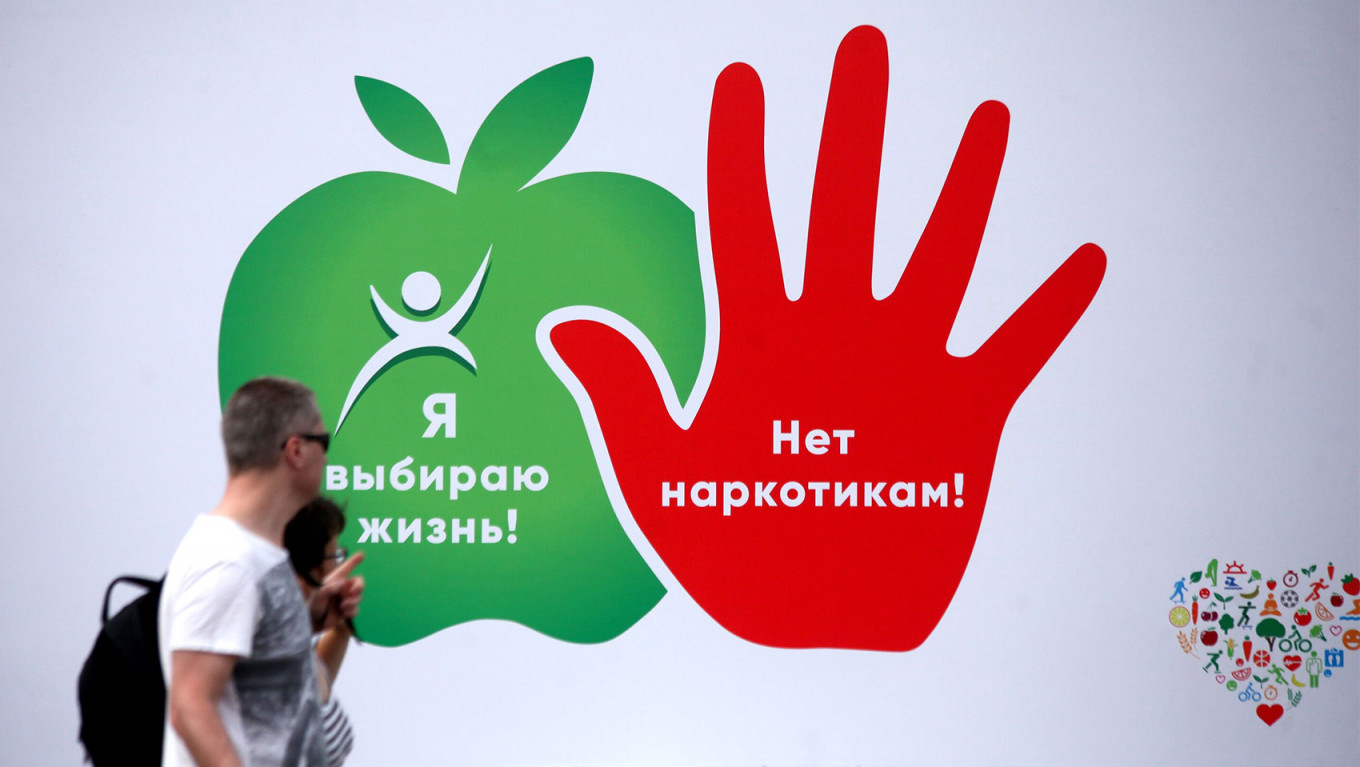U.S. and German authorities’ decision to block Russian darknet drug marketplace Hydra following the invasion of Ukraine has made life more dangerous for some illegal drug users, according to Russian charities.
Hydra, which was estimated to be worth over $1.3 billion at the time of its closure, had dominated Russia’s economic underworld, enabling the purchase of illegal drugs using the Tor encryption system.
“On Hydra, there were quality products,” one drug user told The Moscow Times, requesting that his name and age be withheld for safety reasons.
Its closure in April has radically shaken up the Russian drugs market, leading to a decline in the purity of illegal substances, more scams and the migration of drug sales to messaging app Telegram, according to users and harm reduction experts.
Now, the drug user said, “there is lots of mixing, and if it’s a white powder, it’s unclear what the substance contains.”
While the changes have given charities new opportunities to attempt to reach some of Russia’s millions of drug addicts and help mitigate the harmful effects of illegal drugs, there is evidence that the short-term health impact for many Russians has been a negative one.
“Maybe it sounds a bit strange, but in my personal view Hydra was a good format [with] a lot of information to help drug users look after their health… how to look after your psychological health, how to sleep, which vitamins to take,” a spokesperson from the Drugmap.ru overdose prevention project told The Moscow Times.

“The admins and moderators did everything they could to ensure forum users could access this information. There is a motive here: the healthier the client, the longer they will buy drugs,” the spokesperson said.
Set up in 2015, Hydra offered not only illegal drugs but a diverse range of illicit services including fake documents, counterfeit money, drug manufacturing equipment and cyberattacks. Particularly in Russia’s larger cities, it quickly became the dominant marketplace for illegal narcotics.
Hydra specialized in same-day “dead drop” services in which users could anonymously purchase drugs that would be delivered by workers who left “packages” (or “zakladka” in Russian) hidden in public locations — like behind a dumpster or under a loose stone — where the buyer would pick them up.
Now that Hydra is offline, charities like Humanitarian Action are working to ensure the platform’s 3 million former users can still access vital information and support.
The drug user said that in addition to a decrease in substance quality, scams have become more and more common in the wake of Hydra’s closure.
“There are people who publish some kind of advertisement, you write to them, send them the money and nothing arrives. In my experience, Hydra was sufficiently reliable. But now… drug addicts are going way out of their way for the next dose.”
Now a member of the St. Petersburg branch of Drugs Anonymous, the drug user added that life has been harder for addicts since Western sanctions — although there is no evidence that Hydra’s shutdown is linked to Western efforts to punish Moscow for its attack on Ukraine in February.
“We certainly can’t underestimate the kind of social impacts such as unemployment… and financial desperation for the average person… I think drug addiction is really on the rise every day for many reasons, including the introduction of sanctions,” said the user.
Police seized Hydra’s servers in the U.S. and Germany and cryptocurrency wallets containing $25 million worth of bitcoin in a coordinated operation. The cybercrime hub, which worked in other former Soviet countries including Ukraine, Belarus and Kazakhstan, reportedly had more than 17 million customer accounts.
“The global threat of cybercrime and ransomware that originates in Russia, and the ability of criminal leaders to operate there with impunity, is deeply concerning to the United States,” U.S. Treasury Secretary Janet Yellen said after the seizures.
However, not all experts agreed that Hydra’s dismantling has had a negative impact on Russian drug users.
“Harm reduction projects and drug treatment on Hydra, in my opinion, were more a marketing strategy than a real help to anyone — except for schoolchildren who, before their first ecstasy intake, were looking for information about the substance,” said a spokesperson for the Andrei Rylkov Fund, a leading Moscow charity providing assistance for drug addiction.

Either way, one of the major knock-on effects of the shutdown has been an influx of Hydra users to the messaging app Telegram, which offers promises of anonymity and encrypted communications.
“Young people who use new psychological substances, such as synthetic psycho-stimulators, mostly acquired them on Hydra. But now…these people don’t trust the new marketplaces and have started to use Telegram en masse,” the Humanitarian Action spokesperson said.
The shift has meant Humanitarian Action, and other harm reduction charities, have had to change their strategies and advertise more on Telegram. Like Hydra, Telegram groups offer a platform to discuss issues including better health practices, hospital transport and pet care for users who suffer medical emergencies.
In some cases, charities have been able to reach drug users who previously weren’t aware of their services.
Another drug user, who joined Drugs Anonymous’ addiction recovery program after a recommendation from a friend, said he had previously used Hydra’s services.
The help and advice offered by Drugs Anonymous was far more effective, he said.
“Our group, which is LGBTQ friendly, meets three times a week… we have a group for Chemsex which opened a year ago,” he said. “On Zoom there is also a 24/7 room where you can go anytime day or night… they will listen to you and support you.”
Leave a Reply